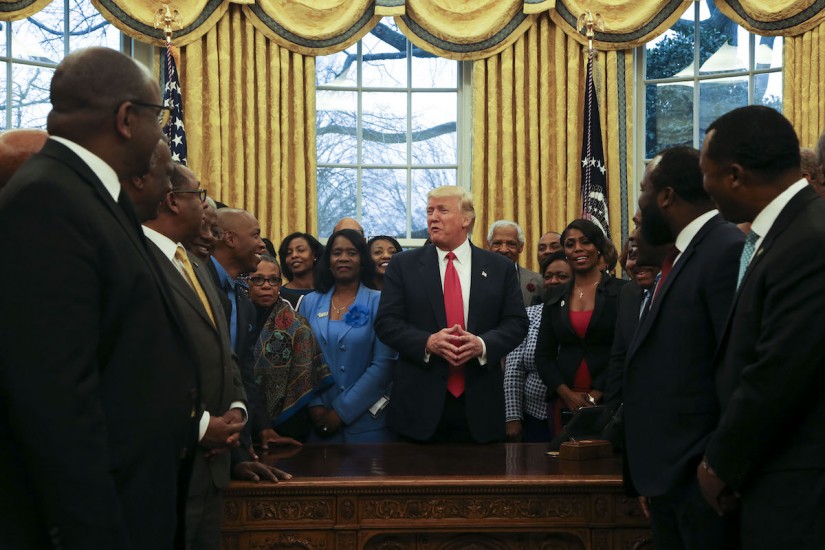Historically black colleges and universities—those institutions of higher education founded prior to 1964 with the principal mission of educating black Americans excluded from segregated public and private universities—have never enjoyed levels of public funding comparable with other institutions. This persistent inequality has led some states, including Maryland and Mississippi, to be sued for failing to fund black and white public colleges at equal levels. With monetary resources at a premium, the leaders of black colleges cannot afford to sit out the opportunity to build a relationship with the president of the United States—regardless of whether that person is a Democrat or Republican.
For Republican presidents, such relationships offer the possibility to address a different kind of shortage: the ongoing lack of support for the GOP among African-Americans. Since Republican presidents routinely fare poorly among black voters, they tend to be open to facile gestures (both symbolic and meaningful) to combat perceptions of their party’s racial animus—particularly with institutions that don’t disrupt conservative narratives. As it happens, historically black schools have a tradition of cultural conservatism, respectability politics and bootstrapping, all of which make them deeply attractive (and viable) targets for Republican outreach.
February 2017, Trump’s first full month in office, began with the president marking the first day of Black History Month by holding a “listening session” with a small clutch of black Republicans. According to attendees, Trump’s interest in black colleges piqued when he was told that President Barack Obama had a rocky relationship with them. For Trump, the prospect of besting Obama was too appealing to ignore: days later, the Trump administration indicated that a major executive order on historically black universities was imminent.
